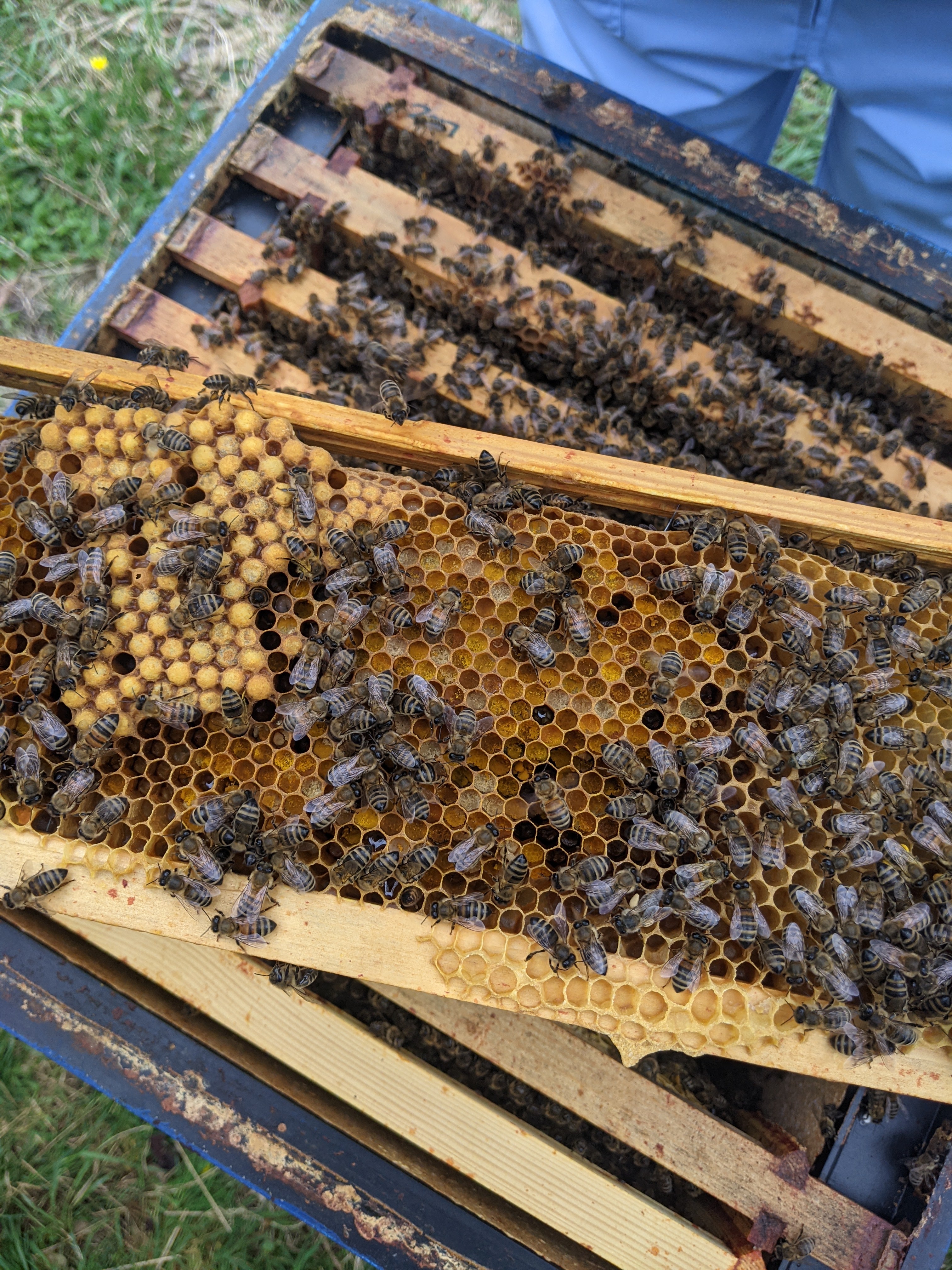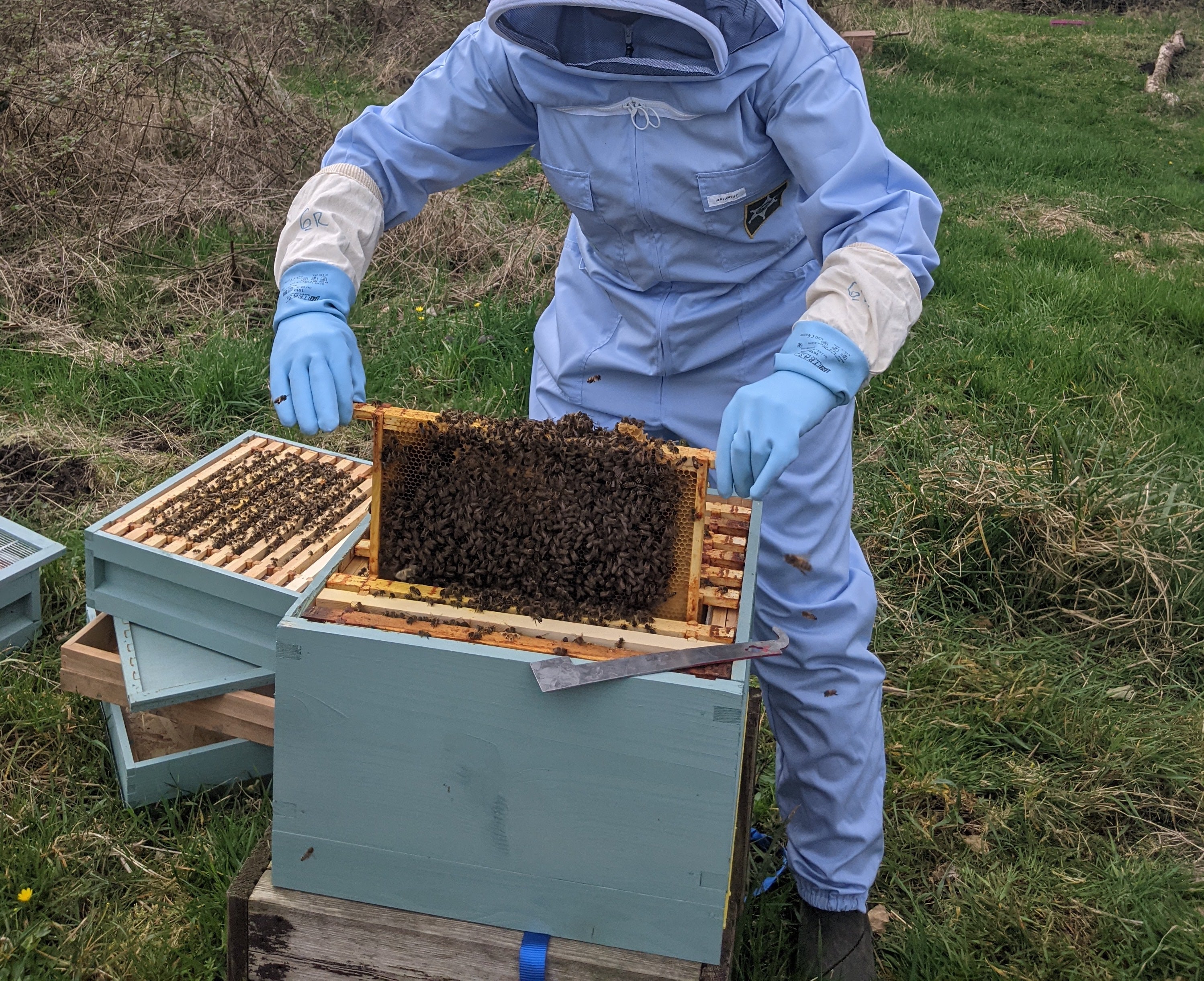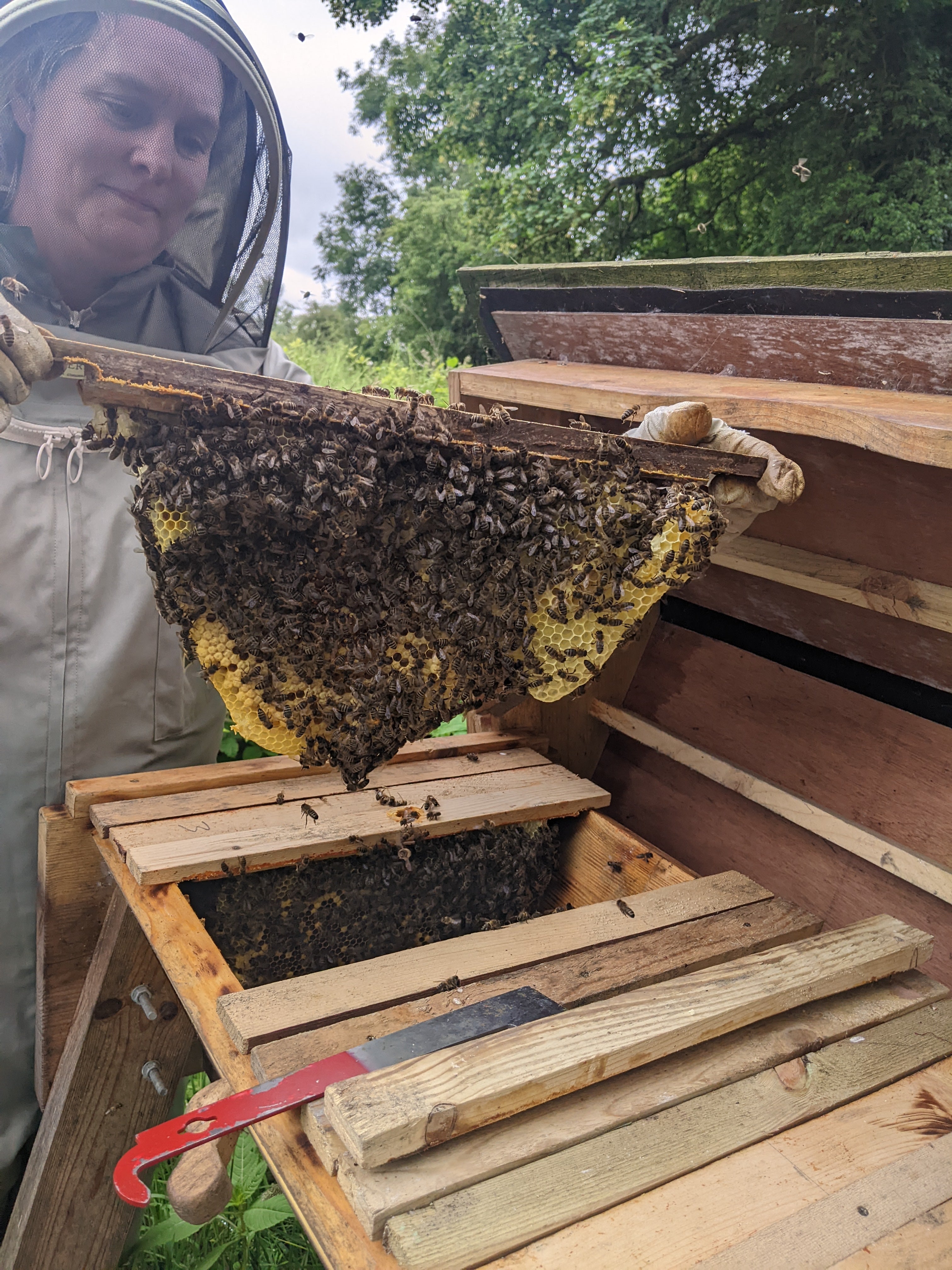
WEEKEND BEEKEEPING COURSE
Our weekend course is two days of theory and practical teaching on the ins-and-outs of becoming a beekeeper. We will equip you with the skills you need to start your own apiary, maintain your equipment, prevent and manage diseases and pests and understand more about the world of bees and pollination. This course is suitable if you’re a total beginner or know a few of the buzz words – we will cover all bases.
COURSE CONTENT
DAY ONE
The first day will be an introduction to the wonderful world of beekeeping, with some basic theory as well as an assisted practical beekeeping session down at our hives. The topics we will cover are:
- Bees, Pollination and People: An introduction to the world of pollinating insects, and how honeys bees are situated within that world. We will look at the environmental impacts modern life is having on wild pollinators, how honey bees are impacting wild pollinators and the origins of human relationships with honey bees.
- Inside a Honey Bee Hive: We will go over the main players inside a honey bee hive, their lifecycles and the different roles they play.
- Hives: An explanation of the different types of hives, what the benefits of each are, the different parts of a hive, basic equipment and choosing an apiary site.
- Good Practice: Here we will be going through how to practice good hygiene, caring for your equipment, what you should be looking for during an inspection and keeping proper log books.
- The Beekeeper's Year: A month by month breakdown of what a beekeeper's year looks like.
We will stop for lunch around 1pm, that will be supplied by us, with a constant flow of teas, coffees and sweet treats throughout the day.
DAY TWO
After an evening of absorbing the mountain of information from day one, day two will go in deeper to showcase how to be a vigilant and responsible beekeeper. There will be another assisted practical session, this time more student led, to encourage a confidence when handling honey bees. The topics covered in day two are:
- Swarming: We will start off by covering what swarming is, why honey bees swarm and how to detect swarming behaviour. We will also cover some swarm prevention techniques and how to mark queens.
- Disease and Good Housekeeping: Probably the most important of topics, albeit not the most pleasant, we will cover the types of honey bee diseases and pests and how to prevent and detect them.
- Products: Here we will have a look all the different types of products you can harvest from your honey bees, including honey, wax and propolis. We will also cover the various legislation and testing requirements.
- Obligations and Associations: Finally, we will chat about the different legal requirements that are needed/recommended when keeping honey bees, and where and how to join your local beekeeping association.
The course runs one weekend a month, from 10am-5pm both days. Not only are our team kind, fun and knowledgeable, they’re also qualified emergency first aiders for adults, paediatrics and anaphylaxis, so we like to think you’re in good hands. We ask that you let us know if you have any dietary requirements at least a week before your course.
PRICING
-
PRICE PER PERSON
£245
-
SEE DATES AND BOOK HERE


QUESTIONS?
Have a look at our FAQ page, or get in touch with thebeekeeper@thebeeschool.com. Please refer to our cancellation policy for information about changing your booking.
